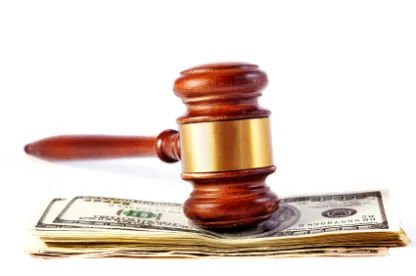In In Re Appraisal of Dell, C.A. No. 9322-VCL (Del. Ch. October 17, 2016), the law firm representing Dell Inc.’s stockholders in appraisal proceedings challenging the valuation of shares in connection with Dell’s 2013 “go-private” merger was awarded approximately $4 million in advanced expenses and $4 million in attorneys’ fees. The Delaware Court of Chancery held that the amounts were reasonable and that the expenses and fees should be allocated pro rata among the appraisal class. Since this was a case where counsel had incurred significant out-of-pocket expenses, the court held that the approach that best balanced the interests of the attorneys and the class was to deduct reimbursable expenses first, then award a fee based on the net benefit achieved.
In 2013, Dell Inc. (“Dell”) completed a merger that was structured as a management buyout, and dissenting stockholders sought appraisal of their shares. The law firm of Grant & Eisenhofer P.A. (“G&E”) represented claimants in ten of the thirteen different appraisal petitions representing 83% of the shares for which appraisal was sought. G&E moved to consolidate the thirteen appraisal proceedings and to be appointed lead counsel. The court granted the motion, requiring that G&E act as lead counsel wherever an issue arose that was common to the entire appraisal class, but otherwise did not require G&E to represent any particular appraisal claimants other than its clients. G&E litigated the case through trial, with the consolidated litigation proceeding along two tracks: one involving disputes over entitlement issues and the other involving the ultimate dispute over valuation. In a post-trial adjudication on May 31, 2016, Vice Chancellor Laster of the Delaware Court of Chancery held that the fair value of the Dell’s common stock at the effective time of the merger was $17.62 per share, or $3.87 per share more than the final merger consideration. Afterward, G&E sought an award of $3,964,125.60 in attorneys’ fees, plus interest and reimbursement of expenses in the amount of $4,007,462.08, to be allocated pro rata across the appraisal class. G&E based its fee request on a written contingency fee agreement with its appraisal clients. Two groups of appraisal claimants, not represented by G&E, opposed the motion. These claimants included entitles affiliated with Magnetar Capital Master Fund Ltd. (collectively, “Magnetar”) and Global Continuum Fund, Ltd. and Wakefield Partners, L.P. (jointly, “Global”).
Delaware’s appraisal statute authorizes a party that has incurred expenses litigating an appraisal to have its expenses, including reasonable attorneys’ fees, allocated pro rata among the shares comprising the appraisal class. Although Magnetar and Global had not opposed G&E serving as lead counsel, they did object to some of the proposed terms of the engagement, including the concept of “double-billing.” Magnetar argued that each petitioner should instead be solely responsible for the fees payable to such petitioner’s counsel, and G&E’s current clients should be solely responsible for the fees payable to G&E, including the fees payable to G&E as lead counsel. The court rejected this argument, and ruled that the fees and expenses contemplated by DGCL Section 262(j) should, as a matter of fairness and a “classic application of common fund principles,” be allocated pro rata across the entire appraisal class.
The court cited a prior decision explaining that the equitable fund doctrine is applicable where there is the creation of a benefit for a class. The controlling authority governing fee awards in common fund situations is Sugarland Industries, Inc. v. Thomas, 420 A.2d 142 (Del. 1980). The Delaware Supreme Court has summarized the Sugarland factors for a court to consider when awarding fees: (1) the results achieved; (2) the time and effort of counsel; (3) the relative complexities of the litigation; (4) any contingency factor; and (5) the standing and ability of counsel involved. Here, the court found that G&E’s litigation efforts generated an aggregate benefit of $25,225,145.08 for the appraisal class, and therefore used that amount in analyzing the application for the award of fees and expenses.
The court found that G&E’s expenses were reasonable and proportionate to the benefit achieved. G&E had produced voluminous backup documentation detailing its expenses, and Magnetar and Global did not identify any problems with G&E’s expenses. Additionally, G&E had already responded to Magnetar and Global’s prior oppositions by deducting from its application expenses not incurred in litigating the valuation issues.
The court noted that in assessing the reasonableness and size of attorneys’ fees, Delaware courts assign the greatest weight to the benefit achieved, while taking into account the nature of the claims and the likelihood of success on the merits. The Delaware Supreme Court had previously observed that Delaware case law supports a “wide range of reasonable percentages for attorneys’ fees, but 33% is at the very top of the range of reasonableness.” Here, the court found that G&E’s agreed-upon percentage of 19.06% was reasonable, not to mention “below the level that precedent would support,” giving Magnetar and Global no grounds to object. The court also went on to analyze the time and effort of counsel, complexity of litigation, and contingent nature of the representation as secondary factors serving as a cross-check on the reasonableness of the fee award. Having considered all the factors above, the court held that G&E’s fee award easily satisfied the test of reasonableness.



 />i
/>i

